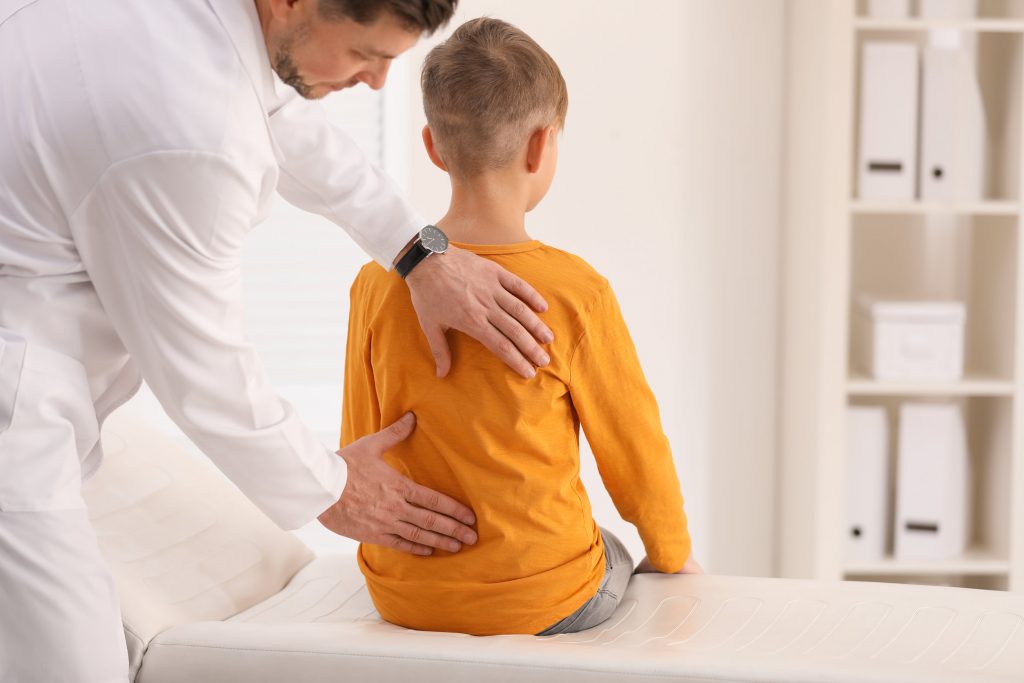Are Growing Pains To Blame For My Child’s Back Pain?
Category: Back Pain | Author: Stefano Sinicropi

Kids and teens are prone to growth spurts, and these periods of rapid growth can lead to pain and discomfort in certain areas of the body. So could their back pain just be a passing phase as they go through a growth spurt, or is it a sign of a more serious issue? In today’s blog, we take a closer look at growth spurts and back pain in teens and children.
Back Pain Caused By A Growth Spurt
If you’ve noticed that your child seems to be getting taller each day, but now they’ve started to complain about spinal discomfort, should you just caulk it up to their growth spurt, or should you consult a physician? While it’s certainly possible that your child’s growth spurt is playing a role in their spinal discomfort, growing pains in and of themselves do not typically affect the spinal region. In other words, a period of rapid growth may have caused a mechanical issue in their spine, like a shifted spinal disc or vertebral segment misalignment. Don’t just assume that their back pain is something that will go away once their growth spurt is over. Instead, consider having them examined by a spine specialist.
Now, that’s not to say that back pain that develops during a period of rapid growth is always a sign of a significant underlying spinal issue. As we mentioned above, the growth spurt could have a role in the onset of this pain. For example, the growth spurt can lead to poor posture habits. If their growth spurt is uncomfortable, a child may slouch or lean forward when in a seated position, and over time this can put excess stress on their cervical or lumbar spine.
Back pain that seems to develop during a growth spurt can also come about without any real connection to the rapid bone development. If your child is active, it’s very possible that their discomfort is caused by a muscle spasm or strain.
Treating Back Pain During A Growth Spurt
So how can you ensure that you are doing right by your child and getting them the care they need if they are dealing with back pain during a period of rapid growth? For starters, have a conversation with your child about their back pain. Does it get worse at certain parts of the day? Has it been getting better or becoming more frequent? Has it affected any areas of their life, like athletics or while attempting to fall asleep? This should help give you a better idea if it’s something that should be examined by a professional.
If you’re still unsure, consider monitoring their pain over the next few days to see if symptoms improve. Have them cut back on laborious physical activity and see if their symptoms begin to resolve. Also, talk to them about their posture and how poor posture habits can contribute to pain, even in young individuals. If their pain seems to get better over the next few days, you can have them begin to take on more physical activity until they are pain free.
However, if pain persists or gets worse, it’s in your best interest to have your child examined by a spine specialist like Dr. Sinicropi. They’ll conduct a physical exam, ask your child about their symptoms and take any necessary images in order to get to the root of their back pain. Once a diagnosis has been made, he’ll set your child up with a personalized care plan to help treat their back pain.
And while we can’t say this with complete certainty, most cases of back pain in teens and young adults that develop without an acute moment of injury tend to respond very well to conservative treatments like rest, physical therapy, posture improvements, stretching and strength training exercises. In many cases, a few small adjustments and exercises can have your child back to living life without spine pain in no time.
So if you need help diagnosing and treating your teens back pain, reach out to Dr. Sinicropi and the team at Midwest Spine & Brain Institute today.